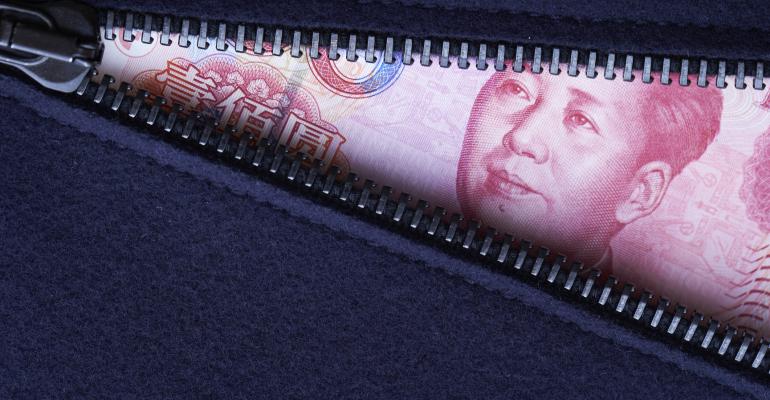(Bloomberg)—China is planning sweeping curbs on its companies’ overseas acquisitions, including barring most foreign investments of $10 billion or more, people with knowledge of the matter said, as it seeks to tame a record dealmaking spree that’s alarmed officials from Washington to Berlin.
The government will generally suspend several categories of deals while still leaving room for some strategic transactions to be executed, the people said, asking not to be identified because the information is private. It will restrict overseas investments of at least $1 billion in industries outside a buyer’s core business, as well as foreign property deals of $1 billion or more by state-owned enterprises, according to the people.
The curbs will last until the end of September 2017, the people said, adding that the rationale for the measures wasn’t explained in detail. Regulators will pay extra attention to deals by highly leveraged firms and companies with poor return on assets, according to the people.
Chinese firms this year have already announced more than double the record $106 billion of foreign acquisitions they made in 2015, data compiled by Bloomberg show. The unprecedented spate of overseas purchases includes China National Chemical Corp.’s pending $43 billion purchase of Swiss pesticide maker Syngenta AG, which would be the largest outbound deal ever by a Chinese company.
“The authorities are finding it difficult to keep all of China’s $21 trillion money supply within China,” said Victor Shih, a University of California at San Diego professor who studies China’s government and finance. “As investors and households struggle to diversify more of their assets offshore, the authorities will need to tighten capital flows further.”
‘Go Global’
The government will also restrict take-privates of overseas-listed Chinese companies using onshore capital, according to the people. Stake purchases of less than 10 percent in an overseas-listed company, as well as Chinese companies’ subsidiaries doing overseas acquisitions valued at more than their parent company, also will be curbed, the people said.
The State Council will issue guidelines on the curbs, at which point it will ask government agencies to draft more detailed rules on implementation, according to the people.
“Domestically this might generate some degree of FX stability, but it could also mean the liquidity would have to stay onshore and finance certain asset markets,” said Geoffrey Yu, head of the U.K. investment office at UBS Wealth Management. “Internationally some of the big recipients might suffer.”
China’s top economic-planning body, the National Development and Reform Commission, didn’t immediately reply to faxed questions. The Wall Street Journal reported the measures Friday, citing unidentified people and documents reviewed by the newspaper.
The government will review some companies’ outbound investment projects in accordance with related rules, according to a report Monday from the official Xinhua News Agency posted on the NDRC’s website.
China will stick to its “go global” strategy and the current management policy, which mainly relies on a registration system for outbound investments, the Xinhua report said, citing a joint comment from the NDRC and three other government bodies.
--With assistance from Fox Hu and Kevin Hamlin. To contact Bloomberg News staff for this story: Steven Yang in Beijing at [email protected] ;Carrie Hong in Hong Kong at [email protected] ;Vinicy Chan in Hong Kong at [email protected] To contact the editors responsible for this story: Ben Scent at [email protected] ;Jessica Zhou at [email protected] Timothy Sifert
COPYRIGHT
© 2016 Bloomberg L.P

